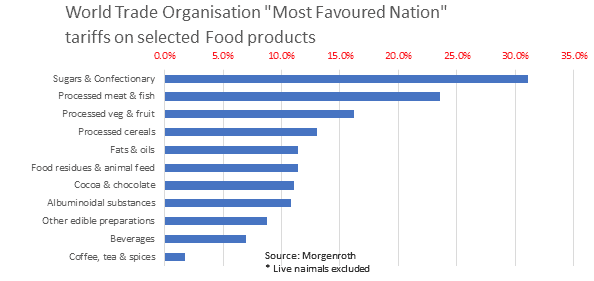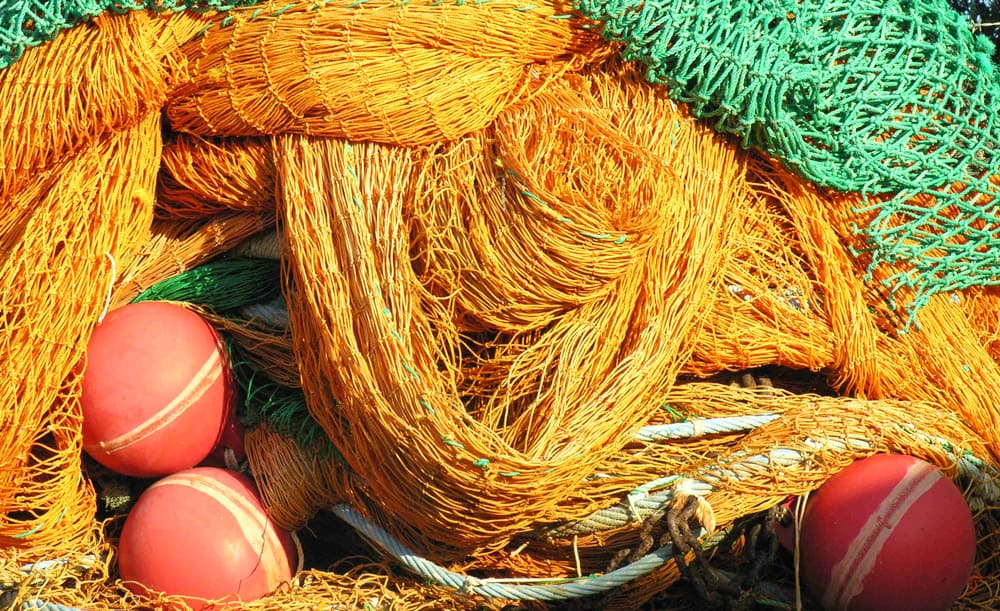Marc Coleman is Founder of Octavian Research and Public Affairs consultancy. He discusses the impact a possible ‘No Deal’ would have on the Irish food and fishing industries.
When Covid broke out one wisecrack lamented the “Good old” days when all we had to worry about was Brexit. Be careful what you wish for. With less than 100 days to go, the lack of a deal on trade between the UK and EU presents a daunting prospect for Ireland.
Officially we have long ago diversified away from the UK with just 11 per cent of our exports going there. In reality this figure is distorted by massive flows of high tech exports such as Pharmaceutical, chemical and information technology products and services. Flows that benefit our domestic economy certainly but in ways that are less employment friendly and far less beneficial to rural and regional Ireland.
Food and fisheries, by contrast, constitute much more employment intensive industries and are more likely to hold up the rural and regional economies suffering most in the Covid economy.
As the chart below shows, the potential impact on these industries from January is daunting: For Processed meat and fish, for example, a tariff rate of 23.6 per cent could be applied.

Much has been written about beef and dairy exports (where the UK is a huge market). However, in remote coastal parts of Ireland fisheries is an even more vulnerable to Brexit, for reasons that go beyond tariffs. Without a deal, Ireland faces not just tariffs but the loss of 40 per cent of its fishing waters. The Irish fishing industry also will face crowding out from other EU vessels seeking refuge in what remains of Irish fishing waters (which given our island location are a share of EU waters way above our population).
The industry has already been floored by Covid which – given the close proximity of crew on a ship makes Covid restrictions very hard to implement – with much of the fleet grounded during the lockdown. With closure of restaurants and air travel, demand for fresh fish has been hit and hit hard. This is just a foretaste of what is to come if Brexit tariffs kick in.
Here, Ireland’s lack of speed in putting together a government has hit Brexit and Covid policy responses. While the EU introduced a €500 million top up for the European Maritime Fisheries Fund (Ireland’s share of which would be approximately €5 million) the transitionary nature of government meant that it hasn’t yet been accessed. Nor have attempts to help the industry e.g. the temporary tie up scheme for fishing vessels, received much traction with just a 3 per cent take-up rate. Like some other government supports, design and implementation issues have caused serious problems.
Here the fishing industry points to the contrast with the €50 million in supports given to the beef sector. Traditionally, for a host of reasons, Ireland’s farming sector has had much more clout than Ireland’s fishing industry. But with a Donegal Minister for Agriculture Food and the Marine, Charlie McConalogue, now in situ this may change: The fishing industry is vital for Donegal’s already isolated and vulnerable economy.
For food and fisheries alike, however, there is good news and hope. The good news is that exports are showing the potential to hold up. There is also vast scope to diversify exports to key markets such as Germany and China. Here, Ireland’s “Origin Green” brand is a powerful asset in a market that, particularly amongst young consumers, is looking for environmentally sound and animal friendly produce.
Finally, a totally different industry – Financial services – is, in its international sector at least, demonstrating the potential to hold up employment, although sadly the domestic banking sector is facing significant employment loss.
Now, more digitally and location independent and more geographically mobile, the financial services industry has the capacity to deliver jobs around Ireland to those parts most affected by downturn in other sectors. Of course, training and further education provision must adapt and providing Apprenticeship and other flexible means of re-skilling will be vital.
Fortunately, few understand the challenges of employment in rural Ireland better than the Minister of State for Financial Services, Seán Fleming T.D. and the new (pending ratification) EU Commissioner for Financial Services Mairéad McGuinness. Unfortunately, nothing will save either industry from a double-dip recession caused by a reversion to lockdown in Ireland and in key export markets.
Marc Coleman is Founder of Octavian Research and Public Affairs consultancy and his latest book “An Economic Response to Covid-19” is available on www.octavian.ie. He is also a former ECB Economist, Irish Times Economics Editor and senior manager with Ibec.







